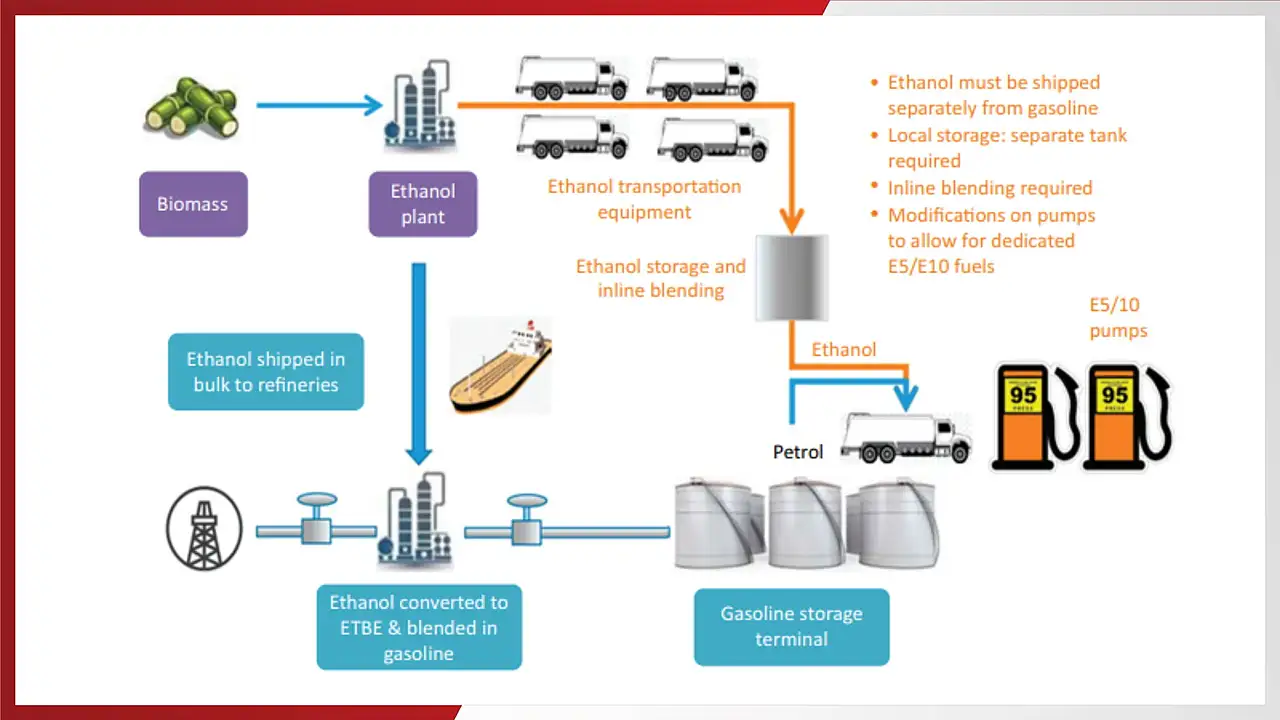
The Energy and Resources Institute (TERI), supported by the Asian Clean Fuels Association (ACFA), has identified significant opportunities for India to improve its biofuels programme. The report explores the potential for incorporating fuel ethers, such as Ethyl Tertiary Butyl Ether (ETBE) and Methyl Tertiary Butyl Ether (MTBE), into India’s existing ethanol blending strategy. This approach is already in use in several countries including Japan and Germany, and could greatly reduce India's reliance on fossil fuels and address the urgent need for cleaner air and energy security.
The report highlights that ETBE-blended gasoline can reduce greenhouse gas (GHG) emissions by up to 30% compared to the commonly used E10 blend. ETBE offers greater energy efficiency, with the potential to incorporate more renewable energy than traditional ethanol blending methods.
Adopting fuel ethers could also bring immediate benefits such as improved fuel mileage, reduced emissions, and significant cost savings for consumers and manufacturers. The report draws on the success of Japan’s fuel blending strategy, which negates the need for extensive new infrastructure, resulting in substantial savings for the country.
India’s existing Ethanol Blended Petrol (EBP) Program has made steady progress towards reducing dependence on imported fuels and contributing to environmental sustainability. However, TERI’s report suggests that this programme could be complemented by blending oxyfuels like ETBE and MTBE to increase the octane level of gasoline, improve fuel efficiency, and meet global fuel standards. The report calls for India to align with the international standard of 95 Research Octane Number (RON) and to upgrade from the current average of 91/92 RON, which would enhance fuel economy by 2% to 10%.

The environmental benefits of using fuel ethers are significant. The report indicates that the use of ETBE and MTBE could reduce particulate matter (PM2.5) emissions, which are a major contributor to air pollution. By producing fewer carcinogenic compounds, these fuels also promote cleaner combustion and lower the release of harmful volatile organic compounds. This reduction in emissions could help India address its air quality issues, especially in cities like Delhi, which continues to suffer from dangerously high levels of pollution.
The report emphasises that India has the capacity to produce these fuel ethers locally, with raw materials already available in the country. This makes ETBE and MTBE a financially viable option for Indian refineries, as they could blend these oxygenates without significant additional costs or new infrastructure. The adoption of this strategy could also reduce India’s crude oil imports, contributing to energy security and enhancing the country’s self-reliance in fuel production.
While acknowledgements are noted for the progress made by the Indian government in promoting alternative fuels, it also points out challenges that must be addressed, such as the potential impact on food security and the technical limitations of ethanol-blended fuels. The infrastructural hurdles related to ethanol storage and transportation are further reasons for considering complementary strategies like ETBE blending.